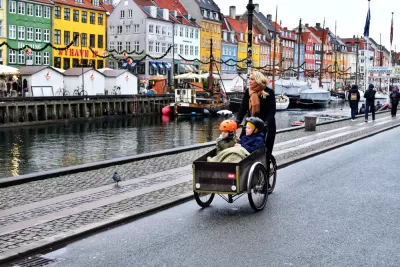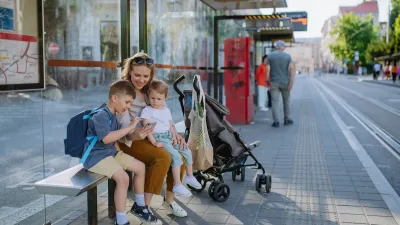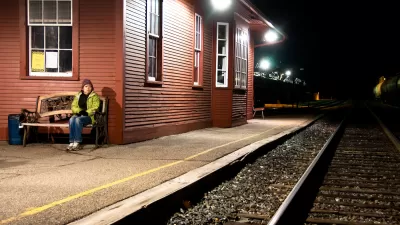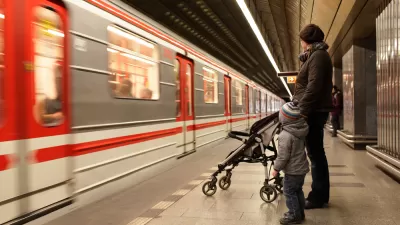Cargo bikes have proven an effective transport mode in cities around the world, but American women still hesitate to use them, citing safety concerns.

An article from Women Mobilize Women asks, “can cargo bikes close the gender mobility gap?”
“With vast gender differences impacting mobility choices, urban planners and researchers have been working to uncover workable solutions for closing the gap and ensuring women have the same transport opportunities as men.” Because women are more likely to ‘trip chain,’ cargo bikes can provide a useful option for transporting children, groceries, and other other household needs.
As the article explains, “The bikes’ added capacity for carrying kids, pets, or groceries makes trip chaining by bike easier, especially with newer bikes outfitted with e-motor capabilities. As their use has spread, they’ve proven to be an effective means of closing the gender mobility gap for women.”
The article provides examples from Zambia and Ghana, where cargo bikes have become an effective transportation tool for women. “Still, safety concerns and limited infrastructure has hindered uptake in the US, leaving cities there well behind the rapid growth seen in European cities. As much as cargo bikes can make trips via pedals a viable alternative to cars, women’s safety concerns especially around cars drove hesitancy.”
The article attributes this to a lack of comprehensive, safe bike infrastructure. “Women have shown themselves interested in alternative forms of mobility; now it’s up to officials to integrate them into the community.”
FULL STORY: Can Cargo Bikes Close the Gender Mobility Gap?

Alabama: Trump Terminates Settlements for Black Communities Harmed By Raw Sewage
Trump deemed the landmark civil rights agreement “illegal DEI and environmental justice policy.”

Planetizen Federal Action Tracker
A weekly monitor of how Trump’s orders and actions are impacting planners and planning in America.

The 120 Year Old Tiny Home Villages That Sheltered San Francisco’s Earthquake Refugees
More than a century ago, San Francisco mobilized to house thousands of residents displaced by the 1906 earthquake. Could their strategy offer a model for the present?

In Both Crashes and Crime, Public Transportation is Far Safer than Driving
Contrary to popular assumptions, public transportation has far lower crash and crime rates than automobile travel. For safer communities, improve and encourage transit travel.

Report: Zoning Reforms Should Complement Nashville’s Ambitious Transit Plan
Without reform, restrictive zoning codes will limit the impact of the city’s planned transit expansion and could exclude some of the residents who depend on transit the most.

Judge Orders Release of Frozen IRA, IIJA Funding
The decision is a victory for environmental groups who charged that freezing funds for critical infrastructure and disaster response programs caused “real and irreparable harm” to communities.
Urban Design for Planners 1: Software Tools
This six-course series explores essential urban design concepts using open source software and equips planners with the tools they need to participate fully in the urban design process.
Planning for Universal Design
Learn the tools for implementing Universal Design in planning regulations.
Clanton & Associates, Inc.
Jessamine County Fiscal Court
Institute for Housing and Urban Development Studies (IHS)
City of Grandview
Harvard GSD Executive Education
Toledo-Lucas County Plan Commissions
Salt Lake City
NYU Wagner Graduate School of Public Service





























